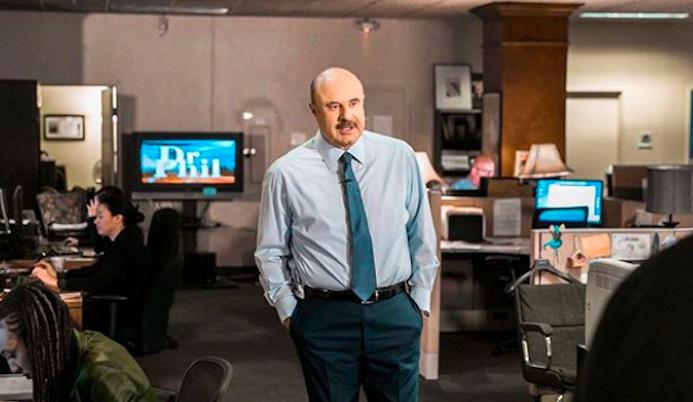
I am not going to lie, watching Dr. Phil is a guilty pleasure of mine. Something about his show makes me feel better about my own life.
He began the episode featuring an inter-abled couple by first asking audience members if they would enter into a relationship with someone who is disabled. The results were startling. 58 percent said they would date a wheelchair user and only 29 percent claimed they would date a person requiring full-time care. Dr. Phil followed the statistics with a comment directed at an able-bodied woman dating a disabled man with quadriplegia:
“[You] can be his lover or you can be his caregiver, but you can’t be both… It won’t work, 100 out of 100 times this won’t work.”
His remark caught many off guard. They did not anticipate a professional to support such an asinine statement. However, I agree with Dr. Phil. Perhaps you are wondering how I, a disabled soon-to-be married woman in a committed relationship, could possibly agree that 100 out of 100 relationships involving a caregiver role fail. The capacity for failure lies in the perspective in which the inter-abled relationship is viewed is where they fail.
The line between lover and caregiver blurs easily in chronic illness. Having your partner empty your drain bag, administer medications through your feeding tube, or hold the bedpan for you when you are too ill to do it yourself often don’t get depicted as desirable. I do what I can to limit my partner’s responsibility for the extra care my medical conditions entail, but if you see these acts solely as care-giving, then Dr. Phil is absolutely correct. The relationship will fail 100 percent of the time.
Love Is Sacrifice
Love in any capacity is sacrifice without resentment. Regardless of a couple’s disability status, most enter a relationship despite their partner’s imperfections. You love them to their entirety, while looking beyond their flaws and obstacles. You also don’t see them as a burden. In fact, you possess a deep yearning to protect them from life’s struggles.
So, the care-giving aspect of a successful inter-abled relationship isn’t actually care-giving. It is simply one partner doing whatever possible to help the person they love, and also understanding that their disabled partner is more than the wheelchair they use, the medical devices implanted on their body, or added assistance they might require.
Love is a Choice
Dr. Phil and others who further the negative disability stigma fail to consider that the relationships they categorize as care-giving are not forced. Each partner mutually and willingly chooses the relationship. That is not to say it is easy. Relationships with chronic illness can be really, really, hard.
Medical care is atypical to the average young couple. Still, the vows “in sickness and in health” would never have been coined if health challenges did not eventually surface throughout the stages of life. Although disability is expected in old age, it should not come as a surprise that the partners of the disabled stick around when illness occurs sooner than normal.
Feeling Unworthy
Due to the false assumptions about inter-abled relationships, I definitely experience periods of doubt. Why does my partner stay? Who wants to live like this when they have a choice? He does not deserve me. There is too much I cannot offer him. Sometimes, I question my own worth. Each insecure, anxiety-ridden qualm is a natural response to the situation, yet that does not render them truth.
Inter-abled relationships are not care-giving. If proper boundaries are set, inter-abled relationships are just as beautiful, just as fulfilling, and just as rewarding. I am worthy. You are worthy. Having a disability does not make you any less deserving of love.


















